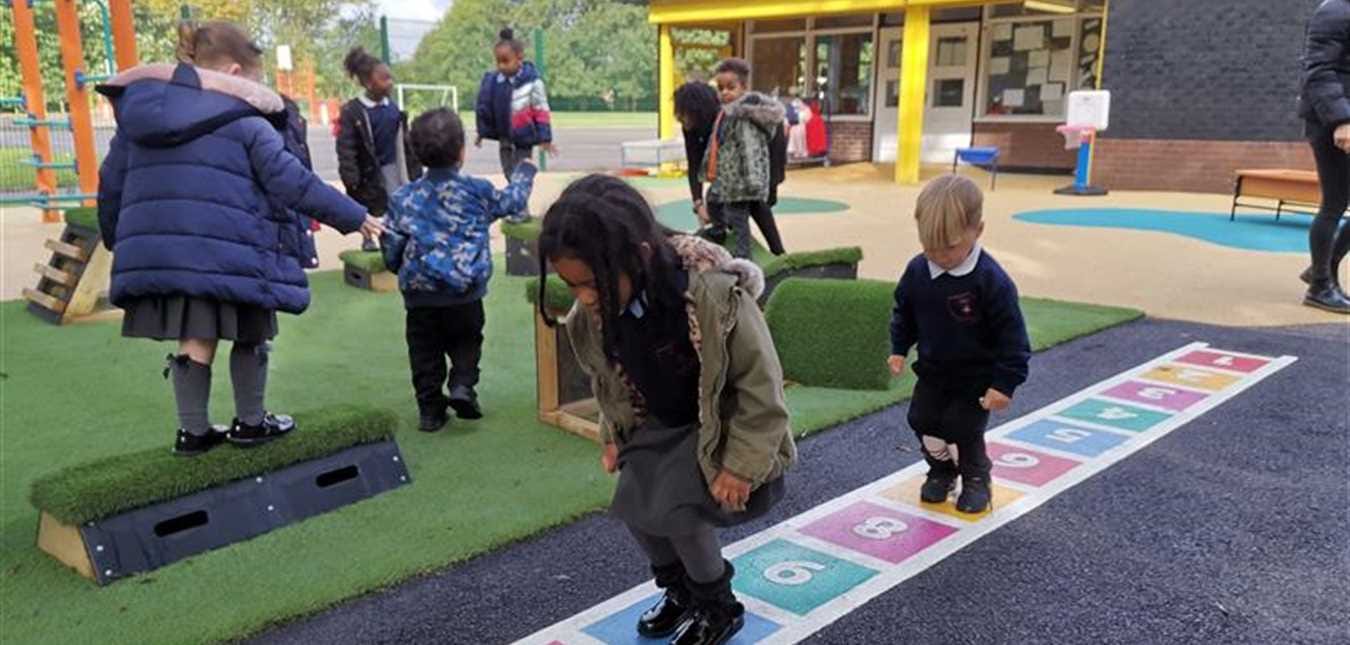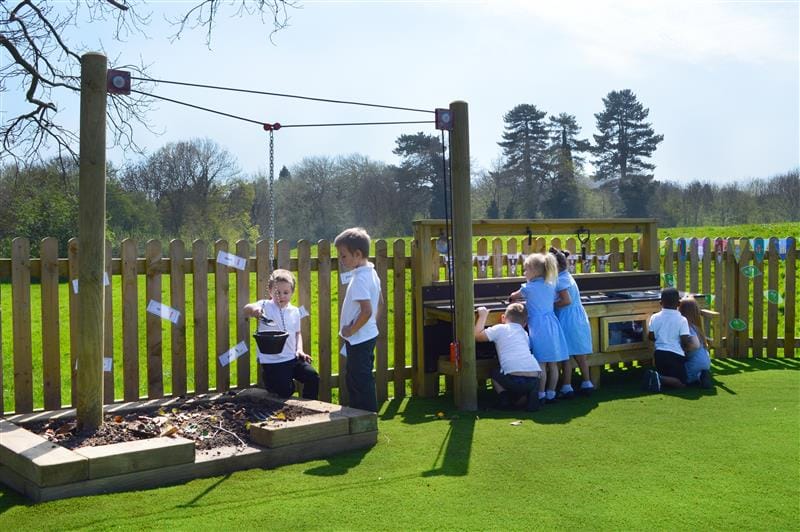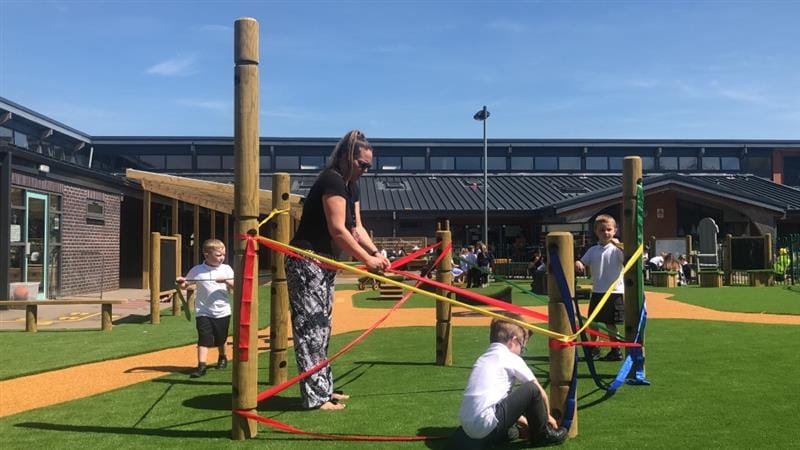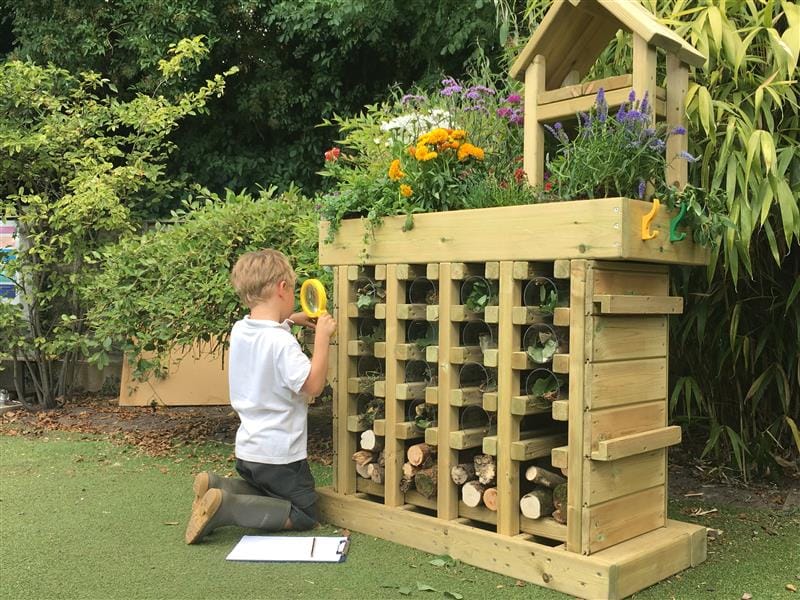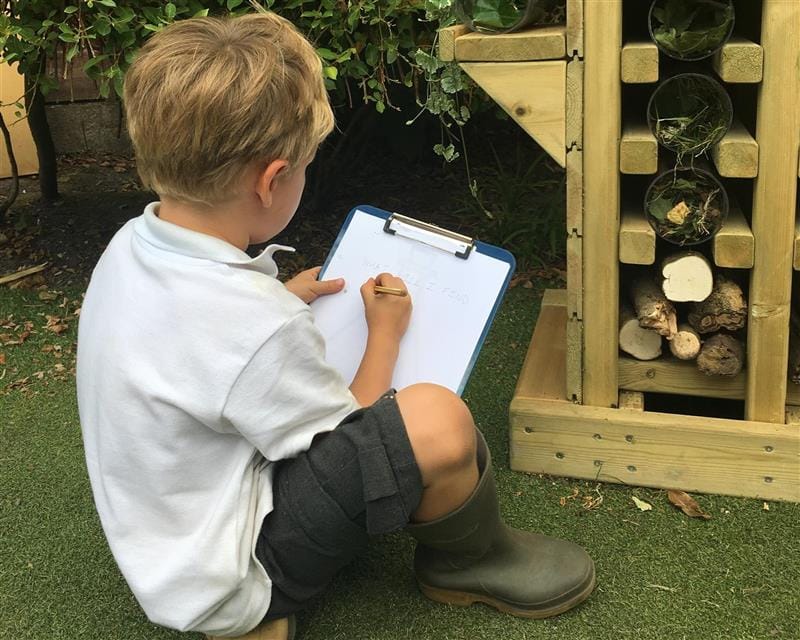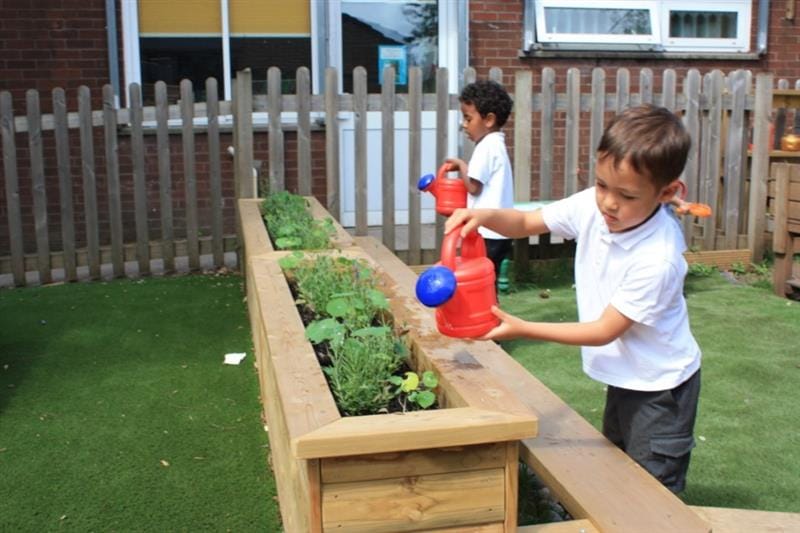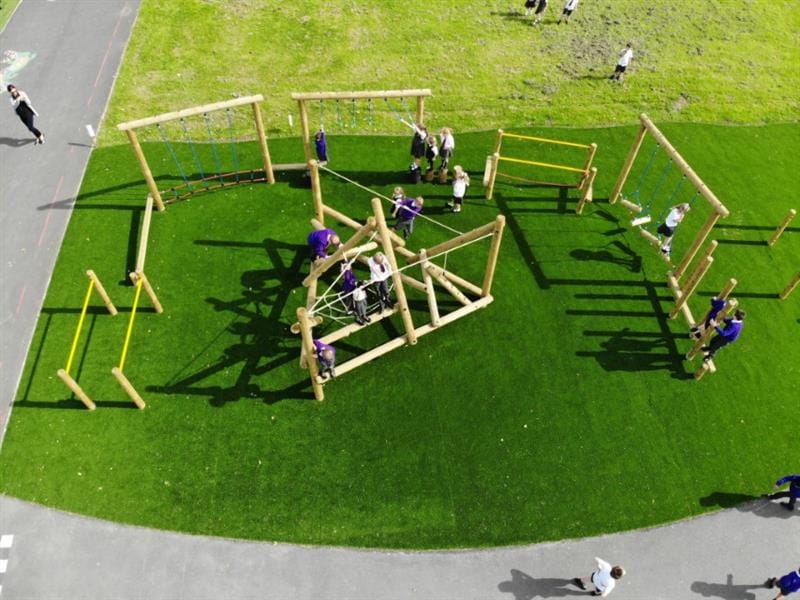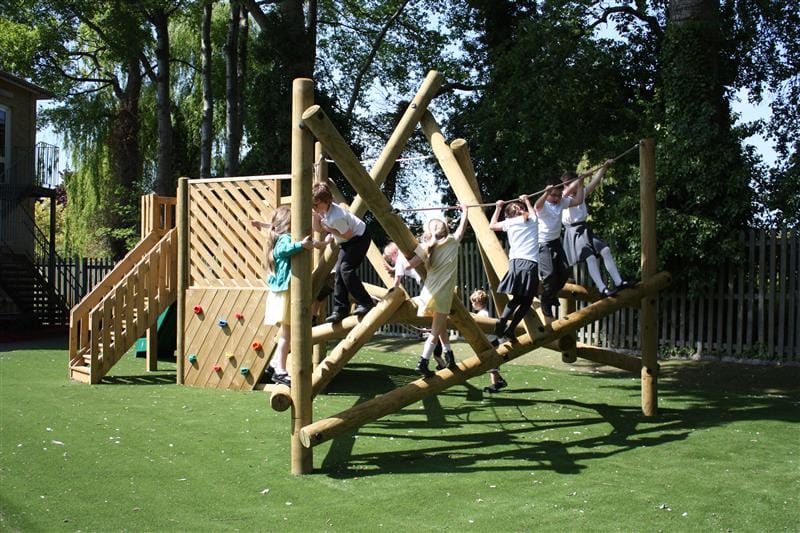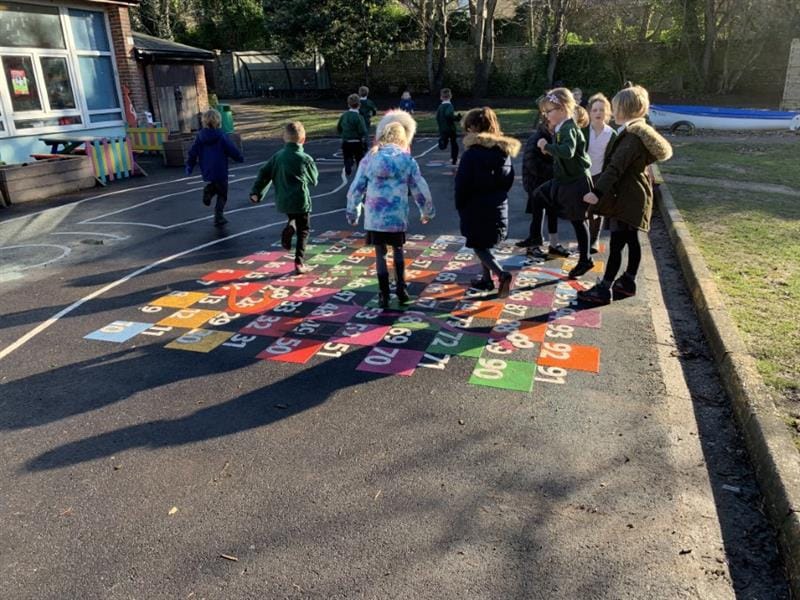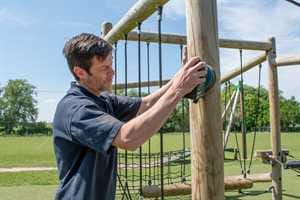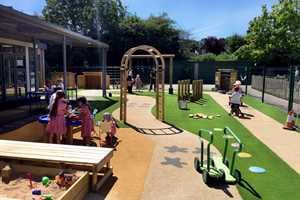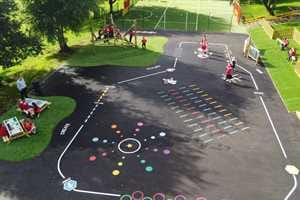
Playground Design
Stimulating Playground Resources For Exciting Mathematical Lessons Outdoors
Physical movement is known to be useful in helping young children grasp mathematical concepts. They can learn through jumping, hopping, climbing and moving as they count. Offering more space enables many elements of maths to work more effectively as children can explore these concepts fully.
Whole class mathematical activities can be taken outdoors such as jumping along a caterpillar number line, counting things they can see or large objects and exploring simple concepts like addition and subtraction.
We have explored 6 stimulating ways you can take maths outdoors to help children grasp important mathematical concepts through play.
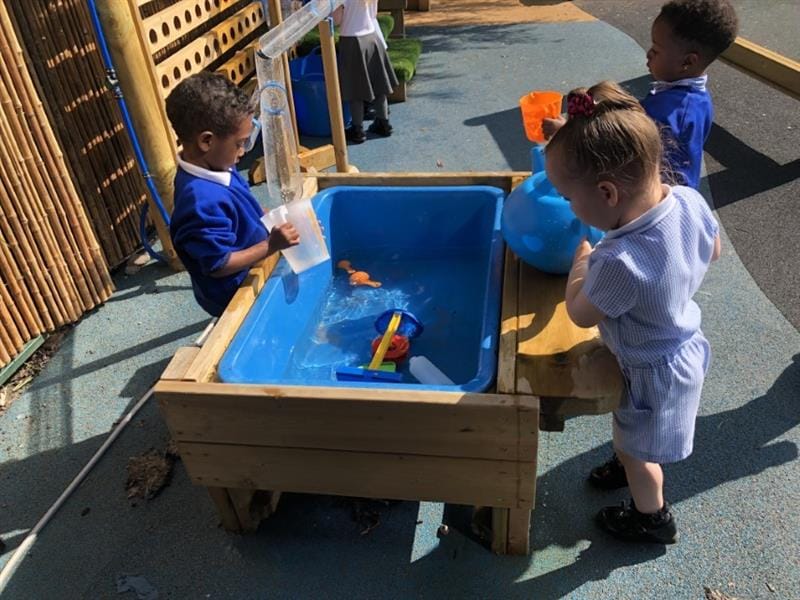
1. Maths Through Sports
Involve children in active mathematic activities as they will remember what has been taught, be encouraged to count and use their mathematical knowledge outside the classroom.
A MUGA encourages children to count as they play a game, which involves them to keep score: promoting addition. Games can include kicking a ball at the goal or scoring baskets with a basketball or netball.
Children can be split into two teams to encourage friendly competition as they count the score together. Depending on the children’s ball skills, subtraction can be added into the game as a point gets subtracted every time a team member misses the goal or basket.
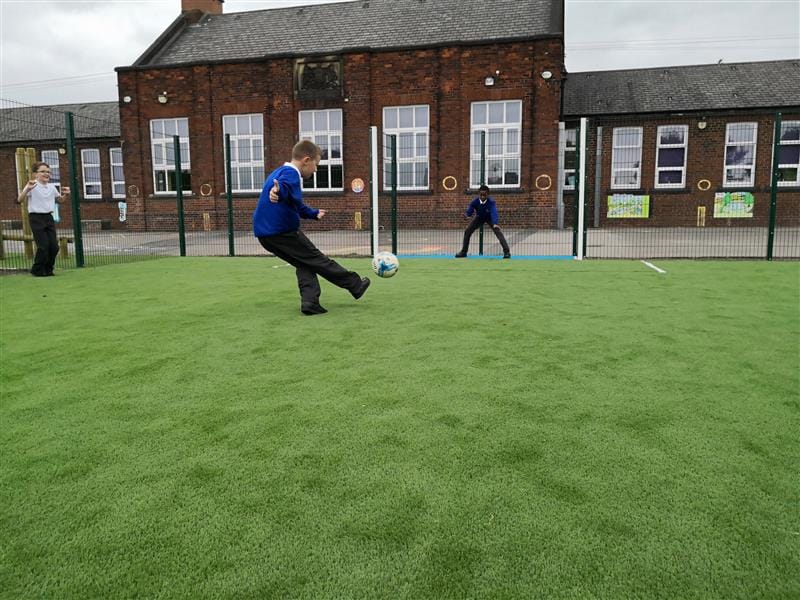
Goal Targets and Shape Targets are also a fantastic way of challenging children. The shapes target can be used for simple, single digit addition while the goal targets are excellent for children who are beginning to add and subtract double digit numbers.
Not only will these activities develop children’s mathematical skills, they will also develop fine motor, hand to eye coordination, lower body strength and other vital sporting skills while getting children active.

2. Messy Maths
Sand tables, water tables and mud kitchens are wonderful resources children can not only enjoy during playtime but during maths lessons, too.
Providing plenty of loose-play resources for measuring and weighing encourage children to explore capacity and weight. This can be advanced by including labels and challenges that enable children to begin to recognise different units of measurements and weights.
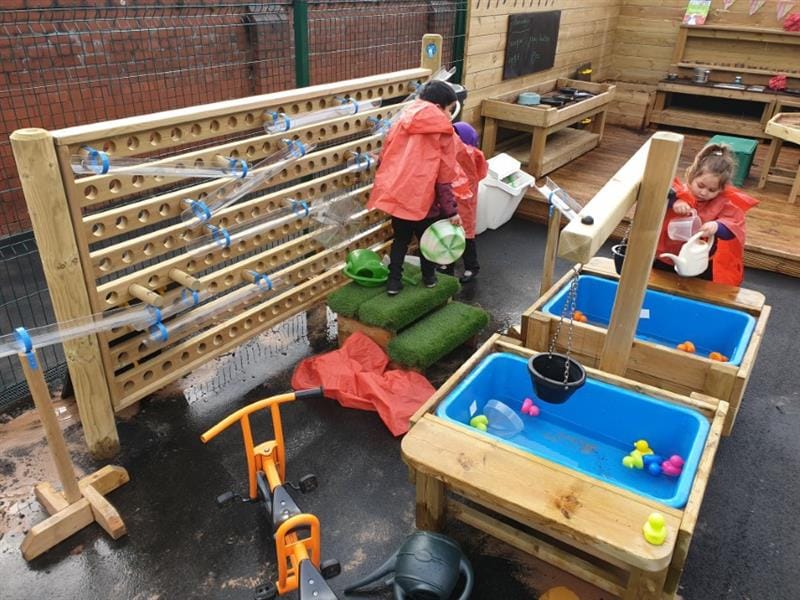
The Mud Kitchen can be used to explore recipes and measurement. Ask children to follow a recipe to make a mud pie, mud cake or mud muffin, or task children with writing the recipe of the delicious bakery good they are making on the chalkboard counter top; contributing towards literacy skills, too.
- 500ml of water
- 2 cups of mud
- 5 leaves
- A teaspoon of glitter
Including resources that benefit mathematical concepts through messy play enhances learning. They provide children with a sensory experience and develop fine motor skills as children manipulate, scoop and dig materials like sand, water and mud.
3. Mathematical Construction and Den Making
Den making and construction are stimulating, collaborative activities.
They promote mathematical learning as children explore concepts like estimation and testing. To build dens, children have to think of ideas, estimate if they will work and then test these ideas by working together to create a wonderful den: contributing towards their problem solving skills, too.
Fine motor skills are also developed as children thread materials through the holes to construct their den.
Construction can be taken into the playhouse, dedicated den space or even a performance stage when providing children with loose-play resources such as large blocks or other construction materials.
Children will naturally wander to the area, using the resources to build something that relates to their imaginary games: experimenting, estimating and testing to create their masterpiece.
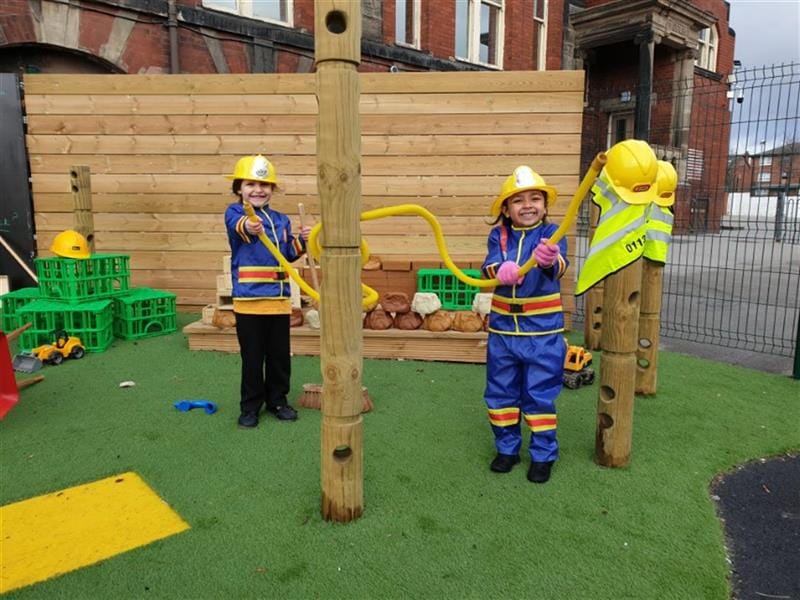
4. Maths Through Natural Play
Natural Playground Equipment like the Bug Hotel and Planters are amazing outdoor resources for maths in the playground.
The bug hotel includes wonderful bug pods that children fill with their own materials to create the perfect hotel room; helping to develop children’s early science learning about habitats.
Once their mini beasts have moved in, mark making materials can be provided and children can be tasked with counting how many of each mini beast they can see in their bug pod.
These insects can be counted with a tally chart or simply just writing the number next to a photo. The bug hotel provides a naturally exciting environment where children will run to check who’s moved in each week.
Planters are another wonderful resource which lends itself to maths. Plant a few seeds and task children with measuring how big their plant has gotten week by week. Extend learning by asking questions to grasp their understanding of the plant lifecycle and what plants need to survive.
5. Active Play Mathematics
Some children are young balls of energy who just want to get up, run and climb. These children may not want to or be interested in learning mathematics in the classroom, where they sit and participate in classical activities including counting objects or sorting objects.
They can be stimulated and learn through a more active approach to teaching mathematical concepts. Using Active Play Equipment is an energising, fantastic approach to mathematics.
Use the climbing walls multi-coloured holds to aid subtraction and addition, by challenging children to count how many of each coloured holds they have to use to traverse across the wall.
Subtraction can be included as children are tasked with counting the colour hand holds they want to use but subtracting another hand hold colour from the number; visually showing subtraction and addition while providing an active challenge.
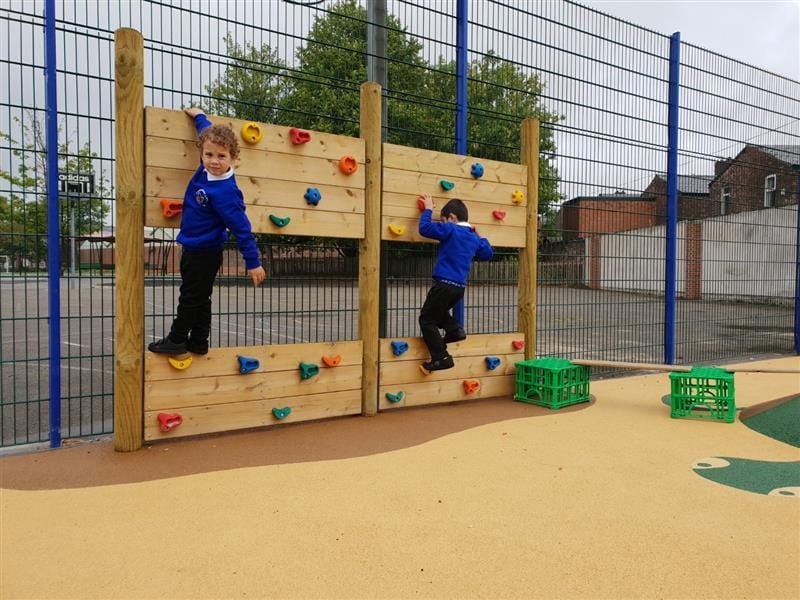
Climbing frames are another thrilling resource for mathematics. Children can be tasked with counting how many different logs they must step on or ropes they must grasp to reach the top. They can also estimate how many they think it will take before they begin.
Fine motor skills, upper and lower body strength and gross motor skills are all developed through these fantastic, exciting activities.
6. Playground Number Lines
Thermoplastic Playground Markings can include a variety of designs - even designs which promote mathematics.
Number lines and hopscotch can be included on your playground and children can be challenged with creating a certain number on the hopscotch or throwing bean bags onto the numbers on the number line.
Vibrant playground markings will inspire imaginative play which results in children including these colourful playground markings and numbers into their imaginative playground games.
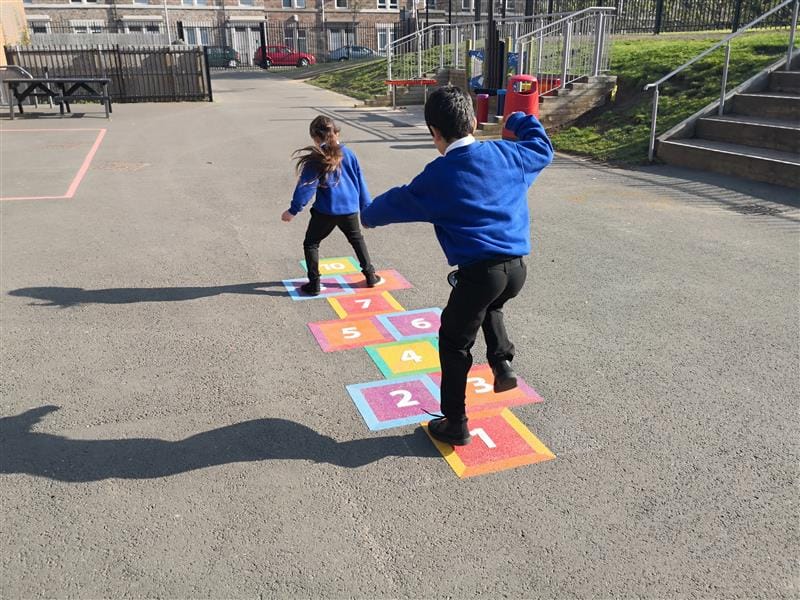
These playground activities promote mathematics in the playground and enable your lessons to take outdoors, stimulating every young child and creating exciting lessons that help children learn important mathematical concepts.
Children will excitedly begin participating in these activities and including them in their imaginative play games during play time - enhancing children’s learning.
We design stimulating products and areas that promote the curriculum and enable teachers and practitioners to take the learning outdoors: promoting learning through play. View our full range of products here or contact us here if you’d like to develop a fantastic outdoor learning area that enhances children’s learning.
